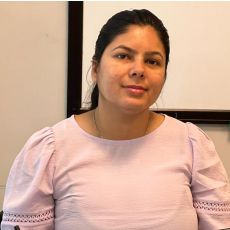
Science (SNC1P)
Course Description
This course enables students to develop their understanding of basic concepts in biology, chemistry, earth and space science, and physics, and to apply their knowledge of science to everyday situations. They are also given opportunities to develop practical skills related to scientific investigation. Students will plan and conduct investigations into practical problems and issues related to the impact of human activity on ecosystems; the structure and properties of elements and compounds; space exploration and the components of the universe; and static and current electricity.
For Ministry Guideline Click Here
| Units | Descriptions | Length (Approximately) |
|---|---|---|
| 1. | Biology: Sustainable Ecosystems and Human Activity Students will demonstrate an understanding that ecosystems consist of a variety of components, including, in many cases, humans and that sustainability of ecosystems depends on the balanced interactions between their components. They will also explore ways human activity can affect the sustainability of aquatic and terrestrial ecosystems. |
27 hours |
| 2. | Chemistry: Exploring Matter Students will demonstrate an understanding of the specific properties of elements and compounds that determine their uses. They will also assess how the use of elements and compounds has both positive and negative effects on society and the environment. |
27 hours |
| 3. | Earth and Space Science: Space Exploration Students will demonstrate an understanding that celestial objects in the solar system and universe have specific properties that can be investigated and understood. They will also explore how technologies developed for space exploration can have practical applications on Earth. |
27 hours |
| 4. | Physics: Electrical Applications Students will demonstrate an understanding of the ways in which electricity is a form of energy produced from a variety of non-renewable and renewable sources. They will investigate how static and current electricity have distinct properties that determine how they are used. Students will also evaluate the social, economic, and environmental implications of the production and consumption of electrical energy. |
27 hours |
| Exam: This is a proctored exam worth 30% of your final grade. | 2 hours | |
| Total | 110 hours | |
Overall Curriculum Expectations
By the end of this course, students will:
- Demonstrate scientific investigation skills (related to both inquiry and research) in the four areas of skills (initiating and planning, performing, and recording, analysing and interpreting, and communicating).
- Identify and describe a variety of careers related to the fields of science under study, and identify scientists, including Canadians, who have made contributions to those fields.
By the end of this course, students will:
- Analyse the impact of human activity on terrestrial or aquatic ecosystems and assess the effectiveness of selected initiatives related to environmental sustainability.
- Investigate some factors related to human activity that affect terrestrial or aquatic ecosystems and describe the consequences that these factors have for the sustainability of these ecosystems.
- Demonstrate an understanding of characteristics of terrestrial and aquatic ecosystems, the interdependence within and between ecosystems, and the impact humans have on the sustainability of these ecosystems.
By the end of this course, students will:
- Analyse the major challenges and benefits of space exploration and assess the contributions of Canadians to space exploration.
- Investigate, through inquiry, physical and chemical properties of common elements and simple compounds.
- Demonstrate an understanding of the properties of common elements and simple compounds, and general features of the organization of the periodic table.
By the end of this course, students will:
- Analyse the major challenges and benefits of space exploration and assess the contributions of Canadians to space exploration.
- Investigate the properties of different types of celestial objects in the solar system and the universe.
- Demonstrate an understanding of major astronomical phenomena and of the principal components of the solar system and the universe.
By the end of this course, students will:
- Assess the major social, economic, and environmental costs and benefits of using electrical energy, distinguishing between renewable and non-renewable sources, and propose a plan of action to reduce energy costs.
- Investigate, through inquiry, the properties of static and current electricity and the cost of the consumption of electrical energy.
- Demonstrate an understanding of the concepts and principles of static and current electricity.
Assessment & Evaluation of student performance
Formative assessments are learning practices that provide important feedback to student progress. Examples include homework and quizzes.
Summative assessments form a foundation for final mark allotment at the end of the unit, term and final evaluation.
An achievement chart will be given to students at regular intervals and the purpose of the charts is to provide feedback to students in relation to content and performance strands.
| Knowledge and understanding | Communication | Thinking Inquiry and Problem solving | Application |
|---|---|---|---|
| 25% | 25% | 25% | 25% |
Unit Tests, Written assignments, presentations, Classroom Observations and Classroom conversations.










